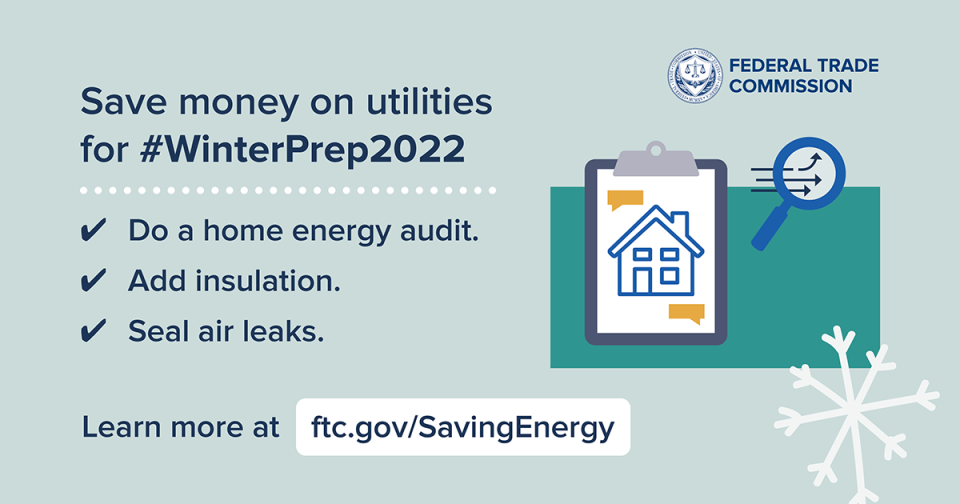When temperatures drop, it often costs more to stay comfortable in your home — and scammers know that. This alert is the first in a series to help you get your home ready for winter, save money, and avoid fraud.
Utility imposters work year-round. Here’s how to recognize and report utility scams.
- Scammers say you’re behind on your bill and, unless you pay right away by gift card or wiring money through companies like Western Union or MoneyGram, they’ll shut off your utility service. Stop. That’s a scam!
- Scammers come to your door saying they need to repair or replace equipment, and that you have to pay on the spot. Stop. That’s a scam!
- Scammers say you overpaid your bill, and they need to confirm personal information to process your refund. Stop. That’s a scam!
If you get a call like this, report it your utility company. Then report it to the FTC at ReportFraud.ftc.gov.
Here are some easy (and more involved) ways to cut your energy costs. The less you’re worried about energy costs, the easier it will be to ignore a call from someone (a scammer) who offers ways to save money this winter…if only you pay them.
- Do a home energy audit. It’ll tell you how efficient your heating system is and where your home is wasting energy. Many utility companies offer free or low-cost energy assessments. Visit energysavers.gov for more resources.
- Seal air leaks around windows, doors, and places where pipes and wires come through walls. Check existing caulking and weatherstripping for gaps or cracks.
- Bring your insulation up to levels recommended by the U.S. Department of Energy.
- Lower your thermostat before you go to bed or head out for the day, or get a programmable thermostat to do it automatically.
- See if help is available. Check to see if you’re eligible for the Low Income Home Assistance Energy Assistance Program (LIHEAP).
Learn more at ftc.gov/SavingEnergy. Then share this advice on social media using #WinterPrep2022.


Thank you! I teach immigrants and refugees. They work so hard for so little. This will help! And I'm pretty well-informed and nowhere else have I seen the info about the CoVID tests. Blessings!